
Posts Tagged ‘paz’
Between war and hope
Rumors of new wars are growing all over the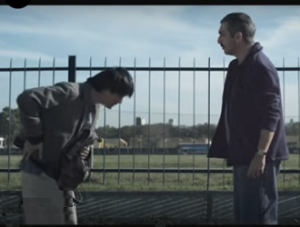 world, even peaceful Canada and Greenland have been threatened by incomprehensible speeches from Donald Trump’s new US government, which will soon take office. The fall of the Trudeau government in Canada, which was celebrated by the population, demonstrates the country’s recent weaknesses.
world, even peaceful Canada and Greenland have been threatened by incomprehensible speeches from Donald Trump’s new US government, which will soon take office. The fall of the Trudeau government in Canada, which was celebrated by the population, demonstrates the country’s recent weaknesses.
The war in Eastern Europe continues with heavy casualties and now there is a lot of bombing on Russian territory: oil fields and strategic military locations such as Engels, the Rostov do Don air base and the Lipetsk region, and losses in Ukraine.
The bases of the Houthi rebels in Yemen have also been bombed by Israel, sparking protests in several Arab countries, and the conflict continues with several denunciations from humanitarian organizations and anti-Semitic allies.
Tensions have also risen with the inauguration of dictator Nicolas Maduro in Venezuela, which continues without any possibility of a peaceful solution to a crisis that is already beyond the ideological, the governments of Chile and Colombia are also contesting the fraud in the elections there, and the government that was apparently elected, Gonzales Urrutia, even threatened to go to Venezuela for the inauguration, but backed down after the arrest and release of his deputy Maria Corina Machado.
The trade war between China and the US has also taken on new contours with the blocking of shipments of Chinese materials to 28 companies considered to be of suspicious use for both civilian and military purposes, especially those helping Taiwan to arm itself.
And the answer will always be yes. It’s good to remember that at such times there have always been leaders who have proclaimed peace: Mahatma Gandhi, the American leader Martin Luther King, sincere religious leaders (those who promote war must be put under suspicion) and all the millions of people who know that war is not beneficial and who ultimately always want the domination of one people over another.
Even if these people seem “idiotic” and naive, literature is full of these characters, as we mentioned last week with Dostoevsky’s characters, and I also remember a movie directed by Argentinian Sebastián Boresztein (A Chinese Tale, photo) which tells of an unexpected friendship between a grumpy hardware salesman and a Chinese migrant called Jun.
Peace is always desired in generous and serene hearts, conflict lives in the minds of people who look at everyone with suspicion, see enemies where there are none, and even though they talk about peace, what they want is to subjugate those who have different worldviews, cultures or religions.
Dostoevsky and the war
Imagining that all Russian literature is Soviet is,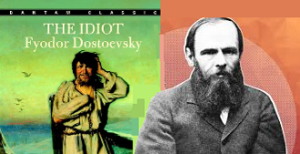 above all, ahistorical because great masters of literature predate the Soviet period: Fyodor Dostoevsky (1821-1881), Anton Chekhov (1860-1904) and Leon Tostoy (1828-1910), not to mention Gogol, Pushkin and others.
above all, ahistorical because great masters of literature predate the Soviet period: Fyodor Dostoevsky (1821-1881), Anton Chekhov (1860-1904) and Leon Tostoy (1828-1910), not to mention Gogol, Pushkin and others.
Dostoevsky was a master at exploring ethical and spiritual issues in his characters, he also addresses issues of faith, redemption and the search for truth.
Dostoevsky was imprisoned for political reasons, his style of literature was realistic, but from a philosophical point of view, to give a more precise connotation, he was an existentialist, his anti-tsar ideas (the Russian monarchy) make many interpreters place him as a “revolutionary”.
Dostoievsky belonged to a group known as the Petrashevsky Circle, despite being from different currents, they were mostly progressive and wanted the end of Russian feudalism.
Among his best-known works are: The Brothers Karamazov, The Idiot and Crime and Punishment, although they are ethical and existentialist dramas, there is within these works the ideal of pan-Slavism, an ideal of unity between all Orthodox Christian and Slavic nations and in this sense, they were conservative, as other currents defended integration into Europe.
The Idiot was a novel that began in September 1867 when the author was in Geneva and concluded in January 1869 in the city of Florence. This alone would indicate its universal character and with themes that go beyond the literary and political scope.
The Idiot tells the story of the young Prince Myshkin who, after several years in a sanatorium in Switzerland, returns to Russia and comes across a world mired in indolence and material life.
Contrary to the title, the character seen by many as an idiot for refusing values and the spirit of indolence by returning to his country, feels like an idiot to a certain extent, but teaches us that it is possible to live outside the unethical and immoral standards of the world. your time.
The character resolves to be courteous and sincere in a corrupted world and the author writes about him: “No one should expect more than this from me. Maybe here they also look at me like a child; It’s okay” and adds: “But can I be an idiot now, if I feel able to see, for myself, that everyone takes me for an idiot? When I arrived, I thought: “I know they take me for an idiot; However, I have discernment and they don’t realize it!…”.
So the Russian drama of experiencing pan-Slavism or integration into the West was already present.
Witnessing and acting in peace
It may seem that peace, seen as a new way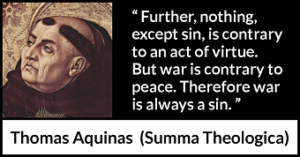 of thinking about personal and social relationships, is something intimate or purely “interior” (it is a complement to exteriority), but it is not, because it is possible to act according to this peace that is different from that conceived as only human.
of thinking about personal and social relationships, is something intimate or purely “interior” (it is a complement to exteriority), but it is not, because it is possible to act according to this peace that is different from that conceived as only human.
This inner peace, which is not what we developed in the previous post, is not what the Greeks called ataxia, peace of mind free from fear, nor aponia, absence of pain, which would be the ideal states of life; pain and fear do exist, especially at times of crisis.
In fact, it is this bad relationship with pain and fear that makes society sink deeper into its crisis, the pursuit of pleasure without measure and the absence of fear in daily attitudes and actions that are contrary to peace in the world; wars begin with small actions of hatred.
Committing to peace, in the realm of truth, can even put your life at risk, as Thomas Aquinas says: “Whoever tells the truth loses friendships”, but it must be said that his truth is not logical but onto-logical, in other words, it follows a logic of Being.
In previous posts, we returned to the question of the cardinal virtues, pointed out in particular by Philippa Foot (English philosopher). In Thomas Aquinas, we find the connection between peace and these virtues: justice, wisdom, prudence and charity. For the Aquinate, peace is achieved in the midst of men if these virtues help to produce the peace desired by humanity.
Thomas Aquinas also understands peace in a broader sense: “peace is the tranquillity of manner, of species and of order” (Aquinas, 2019) (It is worth noting that by order, we mean that each thing is in its proper place).
Thus, along with the virtues of justice, wisdom and prudence, there must be the bond of charity, which is not simply worldly love or appreciation. Charity not only unifies the appetites of individuals, it also leads each man to love his neighbor as himself, that is, to want to fulfill the desires and needs of his neighbor as if they were his own.
The Angelic Doctor says: “Peace is nothing other than the unity of affections, which is proper to God alone, because it is through charity – which only comes from God – that hearts are united. In fact, God knows how to bring together and unite, because God is Love, which is the bond of perfection” (Aquinas 2019).
So this desired peace depends on more than divine love, putting it into practice in our lives and in our daily lives, illuminating conflicting relationships with concord and unity.
SANTO TOMAS DE AQUINO. Corpus Thomisticum. [S. l.]: Fundação Tomás de Aquino, 2019. Available in: http://www.corpusthomisticum.org, access: december 2024.
Remaining at peace
January 1st is known as the World Day of Peace. We didn’t post yesterday because it was a public holiday, but we did look at four books that we’ll be reading and posting throughout the year.
We didn’t post yesterday because it was a public holiday, but we did look at four books that we’ll be reading and posting throughout the year.
We’ve already talked about the peace of the unknown (to most) Sassanids, called the Iberian peace (527-531) and about Christian peace: “I give you peace, but not as the world gives” (Jn 14:27), the dark signs of the coming year are indicative of a better understanding of this peace.
Say what you think, try to be coherent in your actions and words, but don’t expect agreement or applause, in general the truth when it’s harsh is never well accepted, increasingly we have a world of narratives and bipolarization and everyone has their own “story”.
The popular saying goes that the first to die in a war is the truth, and if you have a fair and coherent position (this is impossible without a moral position, and I recall the cardinal virtues described by Philippa Foot), if you are a temple of peace (peace comes from above) get ready.
Also in social terms, those who get involved in conflicts, and there are many situations for this today, need to remain peaceful and have serenity and resilience.
On the other hand, those who suffer from social and economic problems imagine that a spiritual solution will do the trick, as if the divine were a house of credit or the solution to structural problems.
Look for medium and long-term alternatives, the immediate ones are panaceas, especially in financial matters, and be very careful because the winds are blowing in the opposite direction.
In short, keep your inner peace, look for practical solutions to practical things and be serene.
The real chances of peace in 2025
A 2024 assessment of the war is disastrous: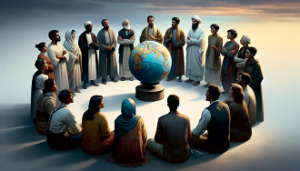 the conflict that has broken out in Gaza, with Israeli forces invading that territory and carrying out actions that are reprehensible for their acts of cruelty and difficulties in accessing international aid organizations, the increase in the conflict in Eastern Europe, now also with aggressions on Russian territory and China’s threats against Taiwan paint a very sad and worrying picture.
the conflict that has broken out in Gaza, with Israeli forces invading that territory and carrying out actions that are reprehensible for their acts of cruelty and difficulties in accessing international aid organizations, the increase in the conflict in Eastern Europe, now also with aggressions on Russian territory and China’s threats against Taiwan paint a very sad and worrying picture.
The American government-elect that takes office in January, Donald Trump, has promised to put an immediate end to the war. The problem is that the 4 provinces dominated by Russia by force: Donetsk, Luhansk, Zaporizhzhia and Kherson, are not in question, although Russia says that “some border adjustments” are possible, and demands that Ukraine be left out of NATO.
Russia would thus gain 18% of Ukraine’s territory, but fears that a “ceasefire” agreement is just a way for Ukraine to take a breather and rearm; if the current escalation continues, greater involvement by European nations could make the conflict off-limits to negotiations.
The other worrying pole is the escalation of the war in the Middle East. Israel is not backing down from its pretensions to eliminate its enemies in the region, but it is doing so outside humanitarian limits and what is considered abominable, even though the war is already a humanitarian disaster, the bombing of schools, hospitals, the last one that was functioning precariously also seems to be out of operation in Gaza, goes beyond the limit and to the point of being an abomination, Even if we know that war is already a humanitarian disaster, the bombing of schools and hospitals, the last of which, which was functioning precariously, also seems to be out of operation in Gaza, goes beyond the limit and makes those responsible guilty of a war crime, of course, the terrorism atack in october 7th in Israel its crime too.
There are reasons to consider peace, yes, because it creates global tension, weakens the economy and affects the most vulnerable peoples, bringing more misery and hunger. Strictly speaking, it shouldn’t interest anyone, but there is a tragic reasoning behind wars, which is to know “if my enemy has lost more”, since everyone loses, and the most fragile are the first to be hit.
The world is polarized, even those who should be the most ardent defenders of peace have given themselves over to the bipolar game of hating the enemy, without the possibility of dialogue or understanding a different point of view, everyone says “this is unreasonable”.
So we frantically search social media for those judgments and hatreds that favor us, without realizing that we have become influenced by this bipolarity and this hostile climate between peoples, political positions and a rational dialogue about their positions and ideas.
There is always hope for a renewal of the civilizing process, but at the moment it seems stuck and regressing to absurd levels of education, health, culture, politics and even spirituality, which has become a business and without any exercise in analyzing the heritage on which most religions were built: solidarity, helping the vulnerable, greater social balance and environments of truly spiritual values and virtues.
Wisdom and humility
Those who claim to be great, or who receive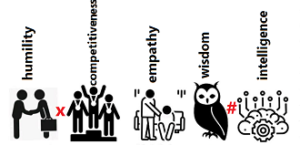 great honors, are not great; in fact, they are more linked to temporal power than to divine wisdom, they are only those who are content with passing joys and honors, often linked only to self-interest.
great honors, are not great; in fact, they are more linked to temporal power than to divine wisdom, they are only those who are content with passing joys and honors, often linked only to self-interest.
Other words that correlate with true humility include: naturalness, simplicity, simplicity, unpretentiousness, dispassion and detachment. In today’s world of immediate and fleeting narratives, they are clearly linked to pretension and affectation.
Another misconception that is more difficult to understand are the everyday correlates of humility, such as: submission, obedience, respect, compliance, subjection and passivity. This refers to people who are humble, but have difficulty discerning, even though obedience is a praiseworthy virtue, it can become subservient and harmful.
In the book Near to the Wild Heart (Perto do coração selvagem), the writer Clarice Lispector wrote: “I accept everything that comes from me because I have no knowledge of the causes and it is possible that I am stepping on the vital without knowing it, that is my greatest humility,” so one can be consciously obedient.
The former prime minister of Israel (1969-1974), Golda Meyer, once said to Moshe Dayan, a military man and politician at the time: “Don’t be humble, you’re not as important as you think”.
The vice that opposes humility is pride. There are many proud, vain, false prophets, Pharisees or just worldly people who have this vice. In biblical terms, it was pride that made one of the archangels of the high hierarchy want to be equal to God; the part contains part of the Whole, but it is not the Whole, and the narrative that everything is fragmentary is also false.
In all the biblical passages in which Jesus performs miracles, he always says to the interlocutor: “your faith has saved you”. The proud, Pharisees and idolaters want to attribute to themselves or their group the divine interventions in which they only participate in the invocation, and many of them don’t believe that the invocation is valid and so they condemn the intercessors, even though they do the same.
Pride explains many evils: war, greed, not caring for those in need, disrespect for nature (wanting to dominate it) and especially power and disrespect.
So humility is the effective antidote to all these evils: we are no more or better than anyone else, but we each have our own uniqueness and our own purpose.
And Europe hasn’t woken up
The creation of the euro, despite the controversial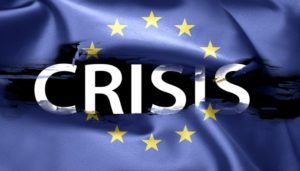 exit of England, not the United Kingdom, because Scotland tried to make a referendum on the issue and the British Parliament rejected it, the attempt to create a European concept and policy did not fail, it just did not advance in the essentials.
exit of England, not the United Kingdom, because Scotland tried to make a referendum on the issue and the British Parliament rejected it, the attempt to create a European concept and policy did not fail, it just did not advance in the essentials.
Its deep humanist and cultural roots were suffocated by idealist and Enlightenment ideologies.
Sloterdijk’s book Se a Europa despertar (If Europe wakes up, in branzilian version) outlines the essentials of what the real Europe would be, its borders and its ethnic bases, what its practically abandoned religious identity would be, it’s not immigration that’s undermining this vision of identity and unity, but the question Sloterdijk asks in his book is what scene do Europeans draw in their decisive historical moments? What ideas animate them, what illusions mobilize them? And it’s not difficult to point out their misconceptions, both in terms of ethnic and cultural bases.
Father Manuel Antunes, too, in his book Repensar Portugal (Rethinking Portugal), written before the European Union, said that his country should turn towards Europe, that before it was a little corner of Europe that turned its back on it and turned towards its African colonies.
Colonization and wars, intestinal, because there were religious wars at the end of the Renaissance, and the Peace of Westphalia, a treaty that removed the religious question from the disputes, but Europe had other border and ethnic disputes, until it culminated in two world wars.
They ended up involving the whole world, because there are interests that go beyond borders, but we have to understand that a true European identity and unity has not yet been built, the borders have been opened, but now they seem uncertain and threatened by the involvement in the war in Eastern Europe.
Sloterdijk’s main thesis in this book is that the model of colonization that gave Europe the idea of an Empire of the Centre (as the author calls it) opened up a vacuum in the post-war period that created a generation of intellectuals who sought a new imperial model, so the author concludes that it has failed to understand that it is no longer a center and has difficulty with this.
The wars are therefore a way of bringing back the idea of empire, the opposite of what Sloterdijk proposed in his book, which would be to abandon this model. This is also the conclusion of Father Manuel Antunes, who adds a model of “social democracy” to Portugal.
Sloterdijk, P. (2002) Se a Europa despertar. Trad. José Oscar de Almeida Marques. Brazil, São Paulo: Estação Liberdade.
Wisdom and love in hominization
Wisdom is not the same as intelligence, culture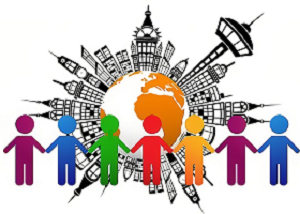 or cunning, it is something clear and pure that is full of life, so it is also a virtue, called cardinal along with justice, fortitude and prudence.
or cunning, it is something clear and pure that is full of life, so it is also a virtue, called cardinal along with justice, fortitude and prudence.
Culture is linked to the cultural tradition of peoples, it can and must be linked to wisdom because it is the only path that can help the process of civilization (or hominization as Edgar Morin calls it) become a safe and sustainable path.
Those who need to dominate by force walk the path of power, there may be something of intelligence there, in general there is, but it is used in the opposite direction to civilization, the argument that wars have helped evolution is only valid because they have learned bitter lessons from war, which they could have learned if intelligence were truly high and imbued with love.
Cunning is the most dangerous intelligence because it is generally linked to power and oppression, it creates intelligent paths, but they are full of traps for oneself and for others, it is not a path of solidarity and communion between peoples and cultures.
Cunning is the most dangerous intelligence because it is generally linked to power and oppression, it creates intelligent paths, but they are full of traps for oneself and for others, it is not a path of solidarity and communion between peoples and cultures.
So the virtue of nature is the one that brings man closer to divine consciousness, or to our divine consciousness, and in this way man finds a solid path to his hominization.
The wise man knows how to live in poverty and wealth, he knows how to control himself in war, prudence is the virtue that is most allied in this respect, he knows how to live in peace, he doesn’t get agitated by it because he knows that it is the true state of grace, those who need goods or abundance to live well are closer to vices than to virtues.
Along with love, the virtue of wisdom contains the others, together with prudence, courage (fortitude) and justice, not that of men, which is imperfect and without mercy, but divine justice.
False prophets and hope
Bad religion and false prophecies are those that do not announce the good news; there is no historical or truly prophetic reading of what the divine kingdom is: peace and hope.
do not announce the good news; there is no historical or truly prophetic reading of what the divine kingdom is: peace and hope.
Yes, it is true that we are in dark times, but it is still necessary to announce peace and hope. It is a fact that man has built civilization on wars and revenge to this day. However, it was peace and hope that developed agriculture, commerce, and the production of social goods. Even in the midst of wars, hope survived and made its way.
They are bad Bible readers. When the disciples asked when the times of destruction would come, the reading says in Luke 21:8-9, “Jesus answered, ‘Watch out that you are not deceived. For many will come in my name, saying, “I am he!” And again: ‘The time is near’. Do not follow these people! When you hear of wars and revolutions, do not be terrified. These things must happen first, but the end will not come right away”
The reading about world conflicts continues (Luke 21:10-11): “And Jesus continued: “Nation will rise up against nation, and country will attack country. There will be great earthquakes, famines and plagues in many places; fearful things will happen and great signs will be seen in the sky”, but this is not the prophecy but rather what men will do before a time of peace and a true civilizing process on the planet. We learn more through pain than through reason and love. Even though these times are said to be rational, the vision of the whole, of the Earth as a homeland common to all peoples and nations, has not yet arrived. Worldly power prevails, attempts at plunder and revenge among peoples, and there is nothing divine in this, it is just the insanity of a shallow and antisocial rationalism.
The hope is that it will lead men to another level of civilization, that will help the poor, that will renew life and healthy models of development. Even what is considered a principle of sustainability is unable to manage the Earth’s resources.
A new civilization will be the one that survives these dark and intemperate times, as the forgotten cardinal virtues say (last week’s post by philosopher Philippa Foot): temperance, prudence, wisdom and courage are forgotten moral virtues, but not for everyone.
War escalation and hope
The use of long-range weapons by Ukraine and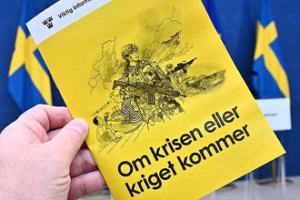 hypersonic missiles that can carry atomic payloads have already been tested in the war, and the threat of war with European countries has even appeared on Russian TV and made headlines around the world.
hypersonic missiles that can carry atomic payloads have already been tested in the war, and the threat of war with European countries has even appeared on Russian TV and made headlines around the world.
NATO military bases in Germany, Warsaw and London appear on a supposed map of first strikes in case Russia feels threatened, internally it has already changed its statutes on the use of nuclear weapons, breaking international agreements, and the Kremlin has authorized an increase in the production of missiles for these nuclear payloads.
The psychology that can be understood about Putin is that he’s not bluffing, and the Nordic countries seem to be the most afraid of a Russian attack. Norway distributes a handbook to its population on what to do in the event of environmental disasters or wars, alluding to this, and Finland and Sweden (pictured above) have already prepared for this hypothesis and are new members of NATO.
The war between Israel and Hezbollah continues to escalate. On Saturday (23/11), an Israeli attack killed at least 11 people and injured 23. The type of missile used is capable of hitting even bunkers and, according to the authorities, there was a strong explosive explosion after the attack.
At least there are attempts at peace agreements there, but negotiations seem to be stagnating. In Eastern Europe, it is hoped that after the take office Donald Trump, who won the US elections, some kind of agreement will be reached, but Ukraine would certainly lose part of its territory.
Hope is never forgotten among people who want peace, more than that who reject hate speech and war, because many of those who talk about peace don’t really want it, they believe that some kind of “victory” is possible on battlefields, where everyone loses.
So we can do our bit, if the war becomes unpopular the governments will move, the only thing that can move them is public opinion, because not even a possible economic, environmental or civilizational catastrophe moves them, despite the rhetoric.

